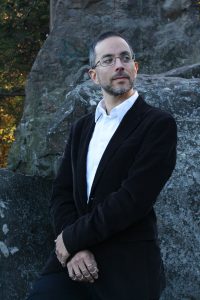The Music Department is excited to announce its first-ever virtual music series!
Hosted by Wesleyan’s Music graduate students, this series showcases the performance, compositional, and research capabilities of Wesleyan graduate music students, alumni, and other Wesleyan affiliates. We recognize the creativity of this diverse group and encourage collaborations as well as individual performances. Panels will be presented in 7 weekly installments on Wednesdays at 8 PM during September, October, and November 2020.
Performances will be available for viewing starting from 8 PM on the scheduled dates and will remain available for the duration of the week. All videos will be re-posted to our YouTube channel for unlimited viewing at the end of our season.
Viewers may access our YouTube channel at this link:
https://www.youtube.com/channel/UCLB2eWWh3MBAH1KTHXxqeWg
Performance Schedule:
Wednesday, 9/23, 8 PM: Bianca Iannitti, Stuart Wheeler
Wednesday, 9/30, 8 PM: Noah Baerman, Anya Shatilova & Max Gibson
Wednesday, 10/7, 8 PM: Garrett Groesbeck, Suhail Yusuf
Wednesday, 10/14, 8 PM: Jocelyn Pleasant
Wednesday, 10/21, 8 PM: Ryan Seward
Wednesday, 10/28, 8 PM: Thembela Vokwana, Aliya Ultan
Wednesday, 11/4, 8 PM: Ian Davis, James Falzone
About the Performers
Noah Baerman
| Musical Vulnerability
Noah Baerman, Director of the Wesleyan University Jazz Ensemble, previews some of the music on his forthcoming tribute album Love Right and discusses the different layers and types of vulnerability he has had to navigate to create and present the work. |
Ian Davis

| “Mom (2019)” for clarinet, trumpet, and tape machine Adam Brisbin (clarinet) Mikey Buishas (trumpet) “Who You Say You Are” by Ian Davis: Rock Band Jason Burger (drums) Michael Coleman (synthesizer) Dandy McDowell (bass) Renata Zeiguer (synthesizer) |
James Falzone

| Microtonality and Approaches to Non-/Dys-Functiomal Harmony |
Max Gibson

| A piece for domra, voices, and electronics: a collaboration between Max Gibson & Anya Shatilova For more information: maxgibsonmusic.com |
Garrett Groesbeck
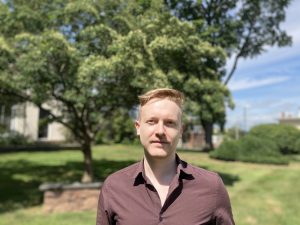
| Koto and Guzheng: a public-facing introduction
With streaming sites such as Youtube becoming a major point of access for information on music and global cultures, developing our ability to share clear, accessible information about ethnomusicology online is one way of increasing awareness of our field and the work that we do. |
Bianca Luisa Iannitti

| Una Storia “Italiana”: An Autoethnography
An autoethnographic case study of the 2018 song “Italiana” by Fedez and J-Ax. |
Jocelyn Pleasant
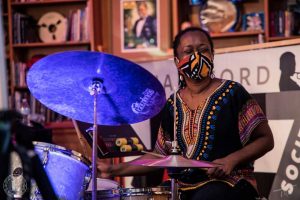
| Music in the African Diaspora
Jocelyn Pleasant presents recent music from her ensemble, The Lost Tribe, and discusses the inspiration behind the songs and the musical direction of the group. Say Their Names features Wesleyan alum Sam Dickey (MA ’14) on guitar, while Diaspora Sings features Uasuf Gueye on balafon, Menes Yahudah on djembe, and Dylan McDonnell on flute. |
Ryan Seward

|
take any flat, plain piece of land, give it a name—
Inspired by the opening lines of poet Lawson Fusao Inada’s “Utica, North Platte,” this fixed media work for field recordings and sine tones was realized by the composer at Cromwell Meadows Wildlife Management Area in Cromwell, Connecticut and at his apartment in Hartford, Connecticut.
|
Anya Shatilova
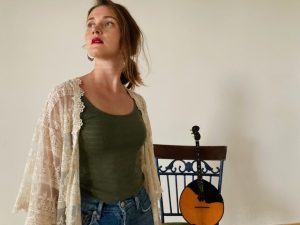
| A piece for domra, voices, and electronics: a collaboration between Max Gibson & Anya Shatilova |
Aliya Ultan
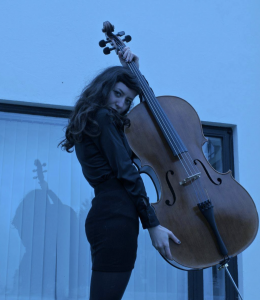
| Songs for Escapism
Songs for Escapism is a series of pieces old and new about the ways in which music helps one cope with trauma. Cellist and singer Aliya Ultan, navigates a series of found objects in relation to her instrument often engaging with trash and recycling. In this material focused solo set, Ultan depicts a playful death and rebirth of values. |
Thembela Vokwana
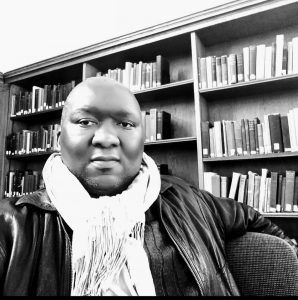
| Amakwaya/Ikwayala: History, practice, publics and futures of Black choral music in South Africa
I present a historical overview of the roughly 145 history of amakwaya/ikwayala vocal genre as practiced in South Africa from the colonial times, through apartheid till the present moment. |
Stuart Wheeler

| “MR. BERNARD SHAW” from On Vivisection
A song for 1-13 voices on a chord using the 3rd and 7th primes. |
Suhail Yusuf

| The Ritual Poetics of Rāg: from the Mystical to the Worldly
While identifying the value of tales in ethnomusicological research, Suhail Yusuf will discuss a chapter from his ongoing dissertation. In addition, he will perform melodies on the Sarangi (North-Indian bowed instrument) composed in Rāg Shahāna, with Tabla player Bhupinder Singh Chaggar. |

